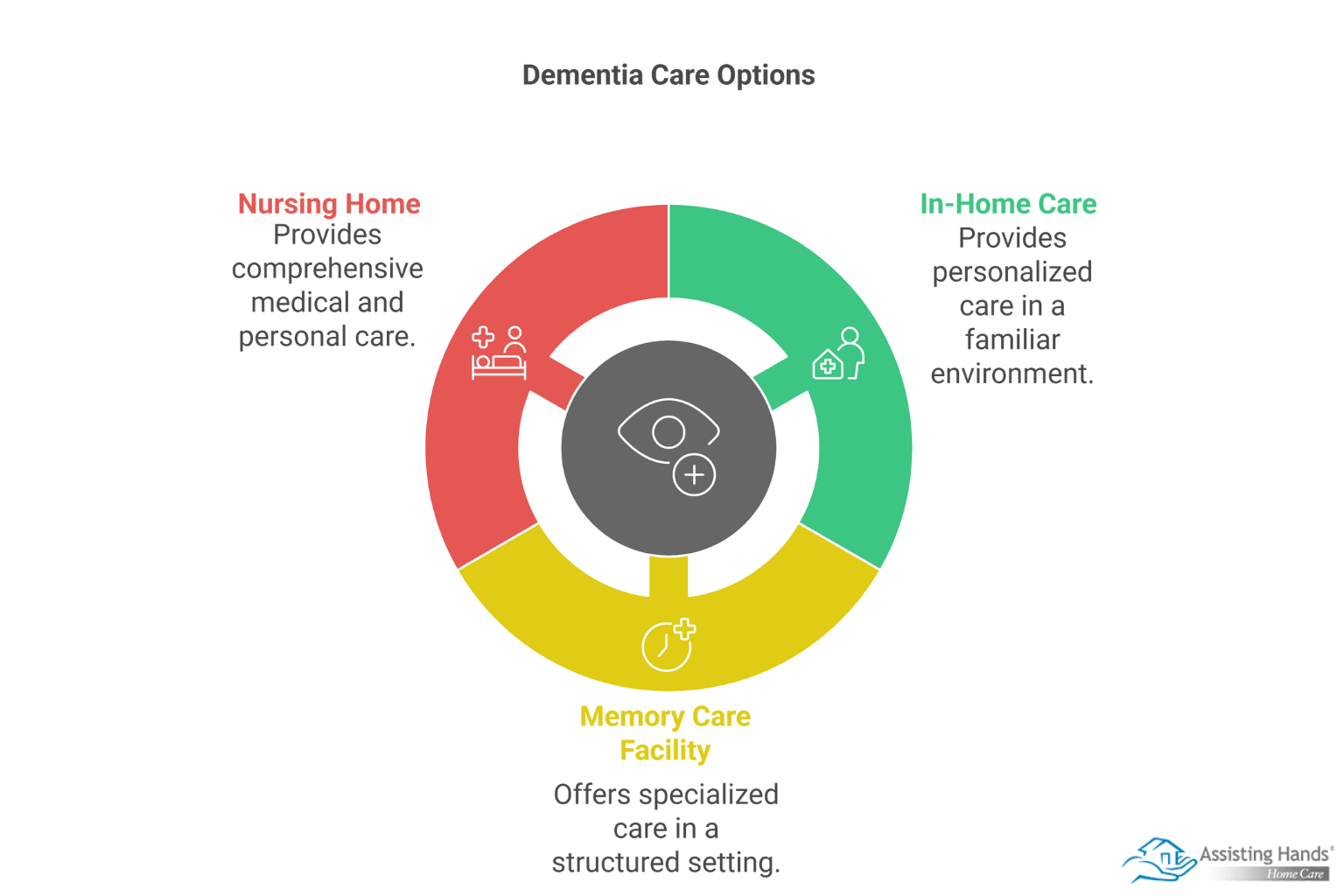
Table of Content
Choosing the right caregiver or facility for a senior loved one with dementia can be a daunting task. With different care options available, making an informed decision requires careful consideration of your loved one’s needs, values, and preferences. This guide will walk you through the key factors to evaluate while exploring dementia care options.
Assess the Level of Care Needed
The first step in finding the right caregiver or facility is understanding the level of care your loved one requires. Dementia progresses in stages, and care needs can vary widely depending on where your loved one is on his or her journey.
- Mild dementia – At this stage, your loved one may need assistance with tasks such as meal preparation, medication reminders, and occasional supervision.
- Moderate dementia – Care may include help with daily activities such as dressing, bathing, and more frequent supervision to ensure safety.
- Advanced dementia – This stage often requires specialized care, including assistance with all activities of daily living and around-the-clock monitoring.
Understanding these needs helps you narrow down whether in-home care, a memory care facility, or a nursing home is the best fit.
Many seniors prefer aging in place over moving to assisted living facilities. If your senior loved one needs assistance to remain safe and comfortable while living at home, reach out to Assisting Hands Home Care, a leading homecare agency. Our dedicated in-home caregivers can assist with meal prep, bathing and grooming, exercise, medication reminders, and many other important tasks.

Evaluate Caregiver Qualifications
When considering a professional caregiver, qualifications and training are critical. Seek someone who has experience working with individuals diagnosed with dementia and demonstrates a deep understanding of the condition.
- Certifications – Look for caregivers with certifications in dementia care. Examples include Certified Dementia Practitioners (CDPs) or individuals with formal training in Alzheimer’s and dementia care through accredited programs.
- Personality – Choose a caregiver who is patient, empathetic, and able to manage challenging behaviors with compassion.
- References and reviews – Don’t hesitate to ask for references or read testimonials and reviews from other families. This can provide valuable insight into the caregiver’s track record.
Tour Facilities and Ask Questions
If you’re considering a dementia care facility, visiting in person is essential. This allows you to evaluate the environment and ask important questions about their care practices.
Questions to ask include:
- Care practices – How is care personalized for each resident? What’s the staff-to-resident ratio?
- Safety features – Are there secure entrances, exits, and monitoring systems to ensure residents’ safety?
- Activities and engagement – Does the facility offer activities tailored to individuals with dementia? How do they foster mental stimulation and a sense of purpose?
Pay attention to the cleanliness of the facility, how staff interact with residents, and whether residents appear comfortable and engaged.
In-home care can be a wonderful alternative to assisted living or memory care facilities. Families looking for top-rated Frederick elder care providers can reach out to Assisting Hands Home Care. From respite care to specialized Alzheimer’s, dementia, stroke, and Parkinson’s care, there are many ways we can make life easier for seniors and their loved ones.
Consider Location and Accessibility
Convenience and accessibility play significant roles in choosing the right care option. If your loved one will be staying in a facility, it’s important to select one close enough for regular visits from family and friends. This can help your loved one maintain a support network and promote emotional wellbeing.
For home care, consider whether the caregiver has reliable transportation and can accommodate your loved one’s location and schedule.
Understand Costs and Financial Options
Dementia care can be costly, so understanding the financial implications is an essential step. Begin by determining the cost of services or facilities you’re considering and compare that with your family’s budget.
- Insurance coverage – Check whether long-term care insurance or health insurance covers some of the expenses for dementia-related care.
- Government assistance – Explore programs like Medicaid, Medicare, or veterans’ benefits that may offset costs.
- Payment flexibility – Ask facilities or caregivers if they offer payment plans or subsidies for eligible families.
By evaluating costs thoroughly, you can find the best option that aligns with your financial situation without compromising your loved one’s care.
A highly trained in-home caregiver with experience in caring for seniors with dementia can be a fantastic resource for family members. There are a variety of reasons to consider professional dementia care. Frederick dementia caregivers are available 24/7 to help seniors maintain better cognitive health, and they can also assist with various tasks like medication reminders, transportation to medical appointments, and nutritious meal preparation. Rely on the professionals at Assisting Hands Home Care to provide high-quality compassionate care for your loved one. Give us a call today to learn about our flexible in-home care plans.







